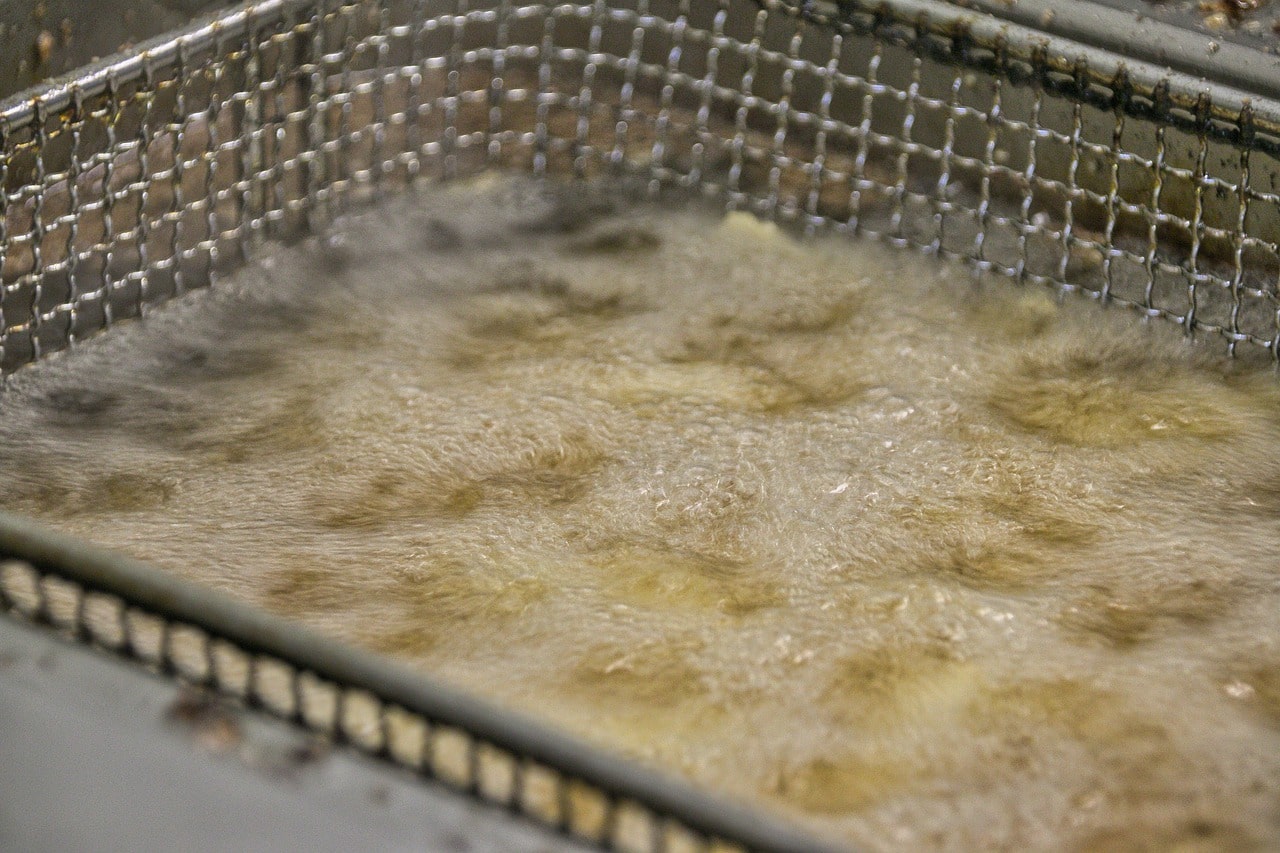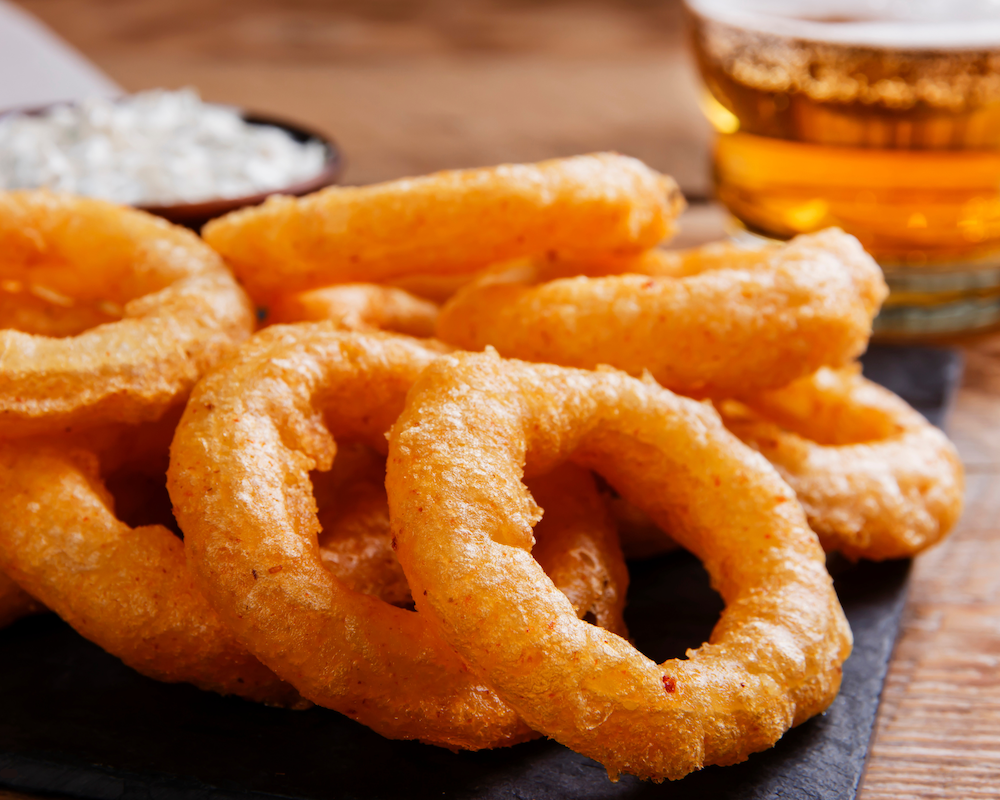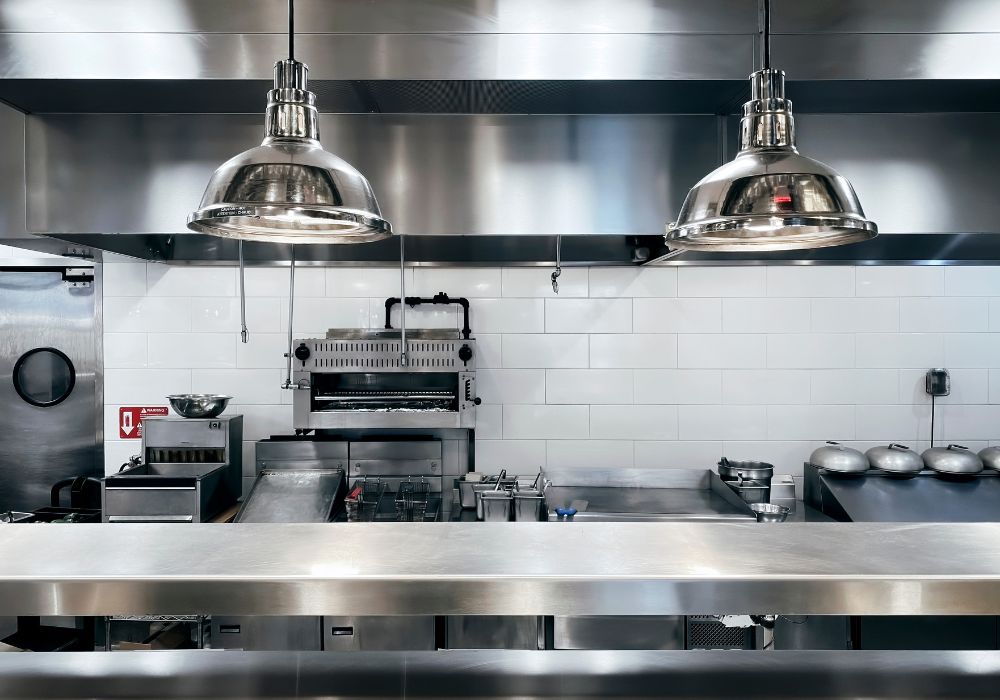Even with today’s healthy eating trends, no commercial kitchen is complete without a deep fat fryer. From mozzarella sticks and crispy tofu to classic fish and chips, a commercial fryer is a true restaurant workhorse. With modern frying technology and access to high-quality frying oils, deep frying is not only tastier but healthier too. Here’s how to find the best commercial equipment for deep frying.
What is a commercial deep fat fryer?
A commercial fryer is similar to countertop fryer you use at home, just on a larger scale. It’s designed to hold a large quantity of oil to fry multiple batches of foods, including onion rings, tempura veggies, chicken strips, fries, wings, and even desserts and kale. For some restaurants, one fryer is enough – but most have at least two to handle high demand periods of the day or to separate vegetarian and meat products.
Types of commercial deep fat fryers
There are several different types of commercial deep fryers suited to different applications.
- Countertop fryers – These are a good space-saver for restaurants that don’t rely heavily on deep-fried food. They are often used in food trucks and market stalls and offer powerful and economic performance.
- Standing fryers – Ideal for high-volume restaurants and catering suppliers, standing fryers are needed when you’re doing regular, high-volume fried foods. They can handle constant, demanding use, and many have custom controls to support efficiency and cooking processes. These are typically used in use in chippies and fast-food restaurants. With the standing fryer, most brands offer a built-in filtration system which helps to extend the life of the cooking oil and improving the cooked product.
- Electric fryers – Electric fryers have several advantages. They have faster recovery times so the turnover of portions is higher, and are very efficient at transferring heat, so they expend less heat into the kitchen space and heat the oil faster. They are the greener and more eco-friendly option because they are more efficient and because they need less maintenance. However, they are less portable, as you need a cord and outlet, and they are more expensive to run because of electricity costs. You will also need to make sure that your electrical capacity isn’t overloaded by your fryer.
- Gas fryers – These fryers require a gas tank or a gas line, so they can be more portable than an electric unit. They tend to be more cost-effective to run if you have an affordable gas supply, but they do require more maintenance than electric models. They are also usually slightly more technical to run, and the system must be professionally installed to meet code requirements.
How to clean a commercial deep fat fryer?
To ensure hygiene, great quality food and consistent results, commercial fryers need to be cleaned regularly. This is known as a fryer boil-out. It’s important to let the fryer cool and to wear protective gear throughout this messy job.
1. Remove parts that can be washed separately. First, you should remove any baskets and parts that can be cleaned in a dishwasher. Then, drain the cooled oil into a suitable container for recycling or disposal, and remove all solid debris from the fryer. Keep in mind that regulations are in place to control the safe and environmentally friendly disposal of frying oil. (Ensure your waste oil company is fully registered)
2. Scrub the fryer. Scrub the fryer with a scrub brush, using the fryer rod to reach awkward corners, and then fill it up to the level like with cool water and a deep fat fryer cleaner. Slowly heat the fryer so that the water starts to steam, letting it boil for around 15 minutes. Let the water cool and drain it out into a bucket, disposing of it as per regulations.
3. Wipe the fryer clean and dry. Again, making sure there are no traces of lint, cleaner, or food debris. Rinse it and dry with a lint-free cloth before refilling with oil. You can find a more detailed set of instructions on how to clean a commercial fryer here.
How to reduce the energy consumption of a commercial deep fat fryer
A fryer can consume up to 9,000 kWh each year – that’s about 6,000 kWh more than the average home in the UK. Even the most energy-efficient models can consume around 3,000 kWh. With those figures in mind, it makes sense that increasing energy efficiency is a top priority for restaurants and catering businesses using fryers. Here are some ways to make your commercial fryer more efficient:
1. Buy high-efficiency rated fryers – Fryers have become a lot more efficient over the years, and if you have an old model, upgrading to new equipment can save you a lot in terms of running costs. Look for models that have a good energy rating, with A+++ being the most efficient.
2. Implement a shutdown protocol – A fryer, like any appliance, will use energy while idle. Have your staff shut down your fryer completely when it’s closing time or during longer quiet periods during the day to save on electricity costs.
3. Clean and maintain your commercial fryer – Well-maintained deep fryers improve performance and allow the fryer to work at maximum efficiency, reducing energy usage as well as extending lifespan. Be sure to follow daily cleaning instructions, perform weekly boils, and have the thermostat adjusted regularly. In addition, repairs and leaks should be handled by a qualified technician.
4. Ensure high production at capacity – Overfilling or underfilling a fryer is a recipe for inefficiency, affecting production times and wasting heat. Ideally, your commercial fryer should be filled and used at capacity as frequently as possible through peak demand hours with a fast preheat time and short recovery times.
5. Use clean, high-quality oil – Standing fryers, electric fryers, and countertop fryers don’t look like complex machines, but they do need certain conditions to run efficiently. If the oil is poor quality or contaminated by food debris, the fryer has to work harder to heat it up, which means more energy is used in the process. This means not only buying the right quality oil for your fryer but running it through a filter daily to make sure it is as clean as possible – and replacing it as soon as required. The best commercial deep fryers have built-in filtration systems to make this quicker and easier.
What are the best types of commercial deep fat fryers?
The best types of commercial fryers have the following features:
- Good temperature control – Different fats and oils have different smoke points, while different foods have different cooking temperatures. Your fryer needs to be able to accommodate both. Fryers that lack high heat cause soggy, greasy and unappetising food, while fryers that are set too high can cause oils to brown and become bitter – as well as a fire hazard.
- Fine particulate filtration system – The better the filtration system is, the more efficiently it can clean your oil. This means that you use less energy while frying and that you can recycle your oil more often without sacrificing flavour or hygiene. Gravity filters are the older style of filter and they perform well, but pressure filters outperform them significantly – cleaning oil right down to the ideal level of 5 microns.
- Energy rating – A good energy rating will allow you to save over the lifespan of your equipment, helping to reduce the cost of running this rather energy-hungry appliance. These fryers have a smart temperature control design, improved heating elements, high-quality insulation, higher production rates, and shorter recovery times.
- Appropriate size – Be sure to consider the volume of frying you will be doing as well as the size of the foods you’ll be frying. You’ll want to be able to accommodate these portions easily within the flow of your kitchen process. You may want to consider two or three fryers to handle large volumes of say, fish and chips, or to separate foods to accommodate vegetarian or vegan customers.
- Cost – While you shouldn’t look at price alone, it is important to consider the value of your investment rather than the price tag alone. Cheaper models don’t have the great features needed to deliver that perfect deep fry at an energy-efficient level. They also tend not to last, so you can easily end up spending more in the long term.
- Brand – Always consider the brand you are buying. Top brands may be more expensive, but they are easier to research to get reviews on different models, allowing you to make a more informed decision. They also can have better customer service and after-sales service, and usually have a good network of parts and technicians to keep your fryer in its optimal running condition through its lifespan.
What is the best oil to use with commercial deep fat fryers?
Deep fat fryers heat oil to between 160 – 190 °C, so it is essential to use an oil that can handle this heat. If the fryer gets too hot for a type of oil, the oil breaks down, releasing acrolein and other harmful compounds. It also becomes brown and bitter, ruining your food. The maximum temperature that an oil can reach before this occurs is called its smoke point, which is a bit below the boiling point. Ideally, you want an oil that will be clear and shimmering at your cooking temperature.
The best oils for deep-fat frying have a high smoke point to ensure the food gets that beautiful crisp and golden finish every time. High-quality palm oil, which has a smoke point of 235°C, is the oil of choice for this type of frying. You can also use sunflower oil or peanut oil, but palm oil offers some of the best quality results for a neutral-tasting, clean and environmentally sustainable cooking oil. This makes it ideal for environmentally-conscious cooking and sustainable businesses while ensuring that customers get an exceptional meal.
Looking for high-quality, sustainable palm oil for deep frying? Frymax supplies trans-fat-free, fully segregated certified sustainable palm oil to our clients in the restaurant and hospitality industry. With superior quality single-sourced RSPO palm oil, we’re committed to helping you create a more sustainable, ethical, and healthier world. For more information don’t hesitate to get in contact with the helpful Frymax team.
Become a Frymax member today to gain access to exclusive content, expert frying advice and the chance to enter our fantastic competitions.






